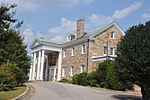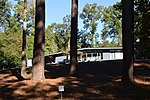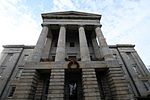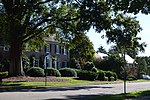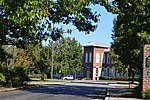Raleigh Charter High School

Raleigh Charter High School is a free, independent public school chartered by the North Carolina State Board of Education. It was founded in 1998 by parents of eighth graders at Magellan Charter School.From its inception through the 2010–2011 school year, Raleigh Charter occupied the historic Pilot Mill behind Peace College in downtown Raleigh. Over the summer of 2011, the school moved to the former Methodist Building on Glenwood Avenue. This location offers proximity to downtown Raleigh; the move, however, was motivated not by dissatisfaction with Pilot Mill, but by financial issues: the school rented its first space, but owns the current one. Raleigh Charter High School is ranked 2nd within North Carolina. Students have the opportunity to take Advanced Placement course work and exams. The AP participation rate at Raleigh Charter High School is 95 percent. The student body makeup is 48 percent male and 52 percent female, and the total minority enrollment is 37 percent. As of the 2015–2016 school year, the school's 4-year graduation rate was 95%.
Excerpt from the Wikipedia article Raleigh Charter High School (License: CC BY-SA 3.0, Authors, Images).Raleigh Charter High School
Glenwood Avenue, Raleigh Five Points
Geographical coordinates (GPS) Address Website Nearby Places Show on map
Geographical coordinates (GPS)
| Latitude | Longitude |
|---|---|
| N 35.796111111111 ° | E -78.646944444444 ° |
Address
Raleigh Charter High School
Glenwood Avenue 1307
27605 Raleigh, Five Points
North Carolina, United States
Open on Google Maps
